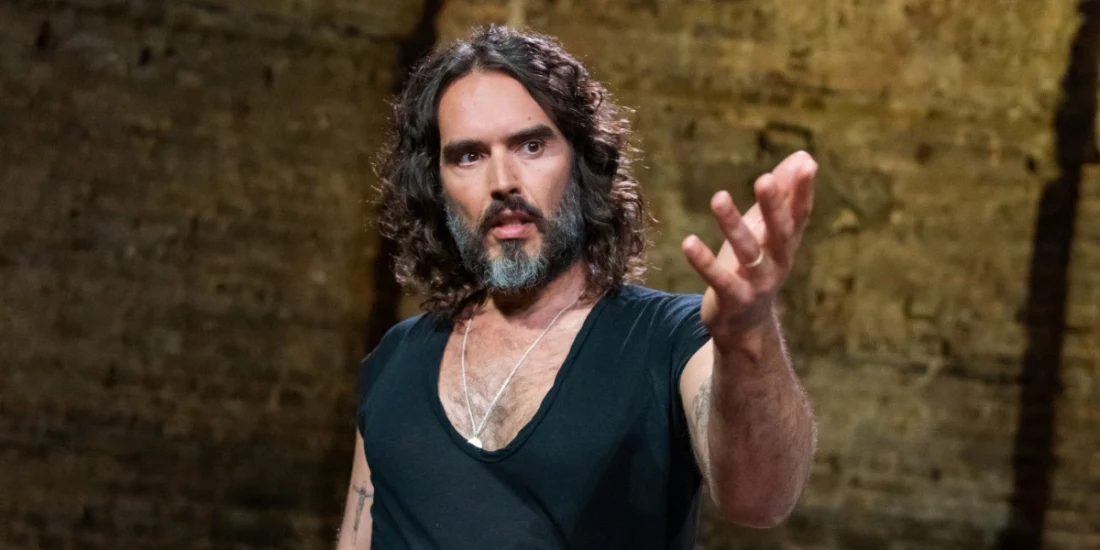Russell Brand takes on the Bard in 'Our Little Lives: Shakespeare & Me'
In the first few minutes of Our Little Lives, Russell Brand asks who in the audience cares about Shakespeare, and gets a moderately enthused cheer. Around the same point, a fan who gets singled out for a few moments of interaction is in breathless awe not of Shakespeare but of Brand himself, seizing any opportunity to try and express his admiration and the importance of the actor and comic to his life.
These are the two poles of Brand's solo exploration of his life and Shakespeare — or perhaps, his life through Shakespeare. Or Shakespeare through his life. It's all of these and ultimately kind of none of them, a meandering journey that will go down more compellingly for lovers of Brand than anyone who's in it for the Shakespeare.
Brand prowls the mostly-empty Almeida stage in front of a socially distanced live audience, the simple cinematography and cuts to audience reactions reminiscent of your standard filmed standup gigs. Brand flits easily between clearly improvised audience patter and more scripted sections narrating his life and his philosophical musings about identity and language, which he then sometimes turns to Shakespeare to fully express. The real engine of the show is his own charisma, and your own individual level of fascination with that, as he does not offer profound insight into his own life, modern life generally, or Shakespeare as poet.
There is no denying that Brand genuinely loves Shakespeare. I was pleasantly surprised to find that he doesn't just amble through the classic monologues (though there's your requisite Richard III, Henry V, and Hamlet, though not the Hamlet speech you're probably assuming), instead drawing on some real Shakespeare deep cuts: Coriolanus, The Two Gentlemen of Verona, and a lesser-known sonnet.
Brand believes that Shakespeare's language accesses universal truths. At one point, he offers the disclaimer that the use of the words "man" and "brother" in a speech must be understood to really mean "humanity"—because "how could [the speech] mean anything if it didn't?" Well, yes, that's the question. Despite noting early on that the history of who Shakespeare 'belongs' to in this country tells a story of power, Brand does not try to tell or even really acknowledge that story. All the speeches he delivers are spoken by white, Christian male characters, four of them royalty.
His relationship to Shakespeare strikes me as an orientalist yearning for an English mysticism. He sees Shakespeare as a sage, tapped into truths beyond even his own understanding as a writer, and describes the experience of performing Shakespeare as "shamanistic" — but even this isn't a particularly original point of view. And it's desperately narrow. Of course Shakespeare can be made to speak to and for the experiences of a cis, white English guy. Brand doesn't show us anything we don't already know, either about Shakespeare or his own life and views.
All that said, I'd really like to see Brand do a full Shakespeare piece. He clearly understands the text and can express it well, and his faintly sullen rock-star energy makes for an intriguing take on his snippets of roles like Richard III and even The Tempest's Caliban. I'd like to see him use his huge love of words and poetry to grapple with an entire play, the prickly bits that aren't neatly trimmed and very relatable. In this form, it's messy and intermittently compelling, but much too simple.
Book tickets to see Russell Brand in Our Little Lives: Shakespeare and Me on London Theatre.
Photo credit: Russell Brand (Photo courtesy of Our Little Lives: Shakespeare and Me)
Originally published on
